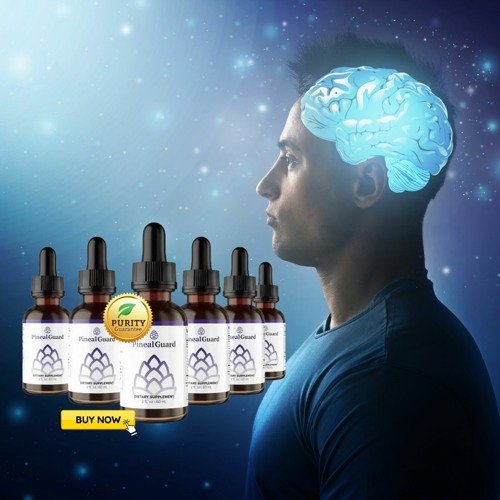Pineal Gland
Introduction
The pineal gland is the “third eye,” a tiny, pea-sized endocrine gland situated deeply within your cerebrum. For a very long time, this little-known gland has been mystically related to spirituality, intuition, and high consciousness. This activation of the Pineal Gland potential will finally lead to the development of your human sense of well-being, clarity, and connection to the world around. Through this blog, we are going to talk about the functions of the pineal gland, common issues that affect its health, and techniques for its activation to unleash its full potential.
A Tiny but Mighty Player in Your Brain
Performing wonders with the biological engineering of the human brain, it contains a number of structures that are highly essential for our day-to-day living. One of these is the pineal gland, which has always remained mysterious and interesting. Though small in size, it has a very big effect on the health and well-being of a person. In this blog, let’s explore what the pineal gland is, its functions, and some interesting facts about this small yet powerful part of our brain.
What is the Pineal Gland?
The pineal gland is a pea-sized endocrine body located deep in the brain, essentially in the centre, and among the two hemispheres. The pineal gland is a part of the epithalamus, resting in the region where the two halves of the thalamus join. Although small, the pineal gland has been the source of scientific interest and philosophical speculation for quite a while.
Understanding the Pineal Gland and Its Functions
This small endocrine organ, the pineal gland, at the very core of our brain, although small in size, has a mighty impact regarding our health and wellbeing. Besides its critical role in the production of melatonin, this gland deeply relates to the intricate web of regulatory systems within our body. That hormone, melatonin, plays a major role in the regulation of our sleep/wake cycle and is but the tip of the iceberg. The pineal gland is also one of the major organs that align our circadian rhythms with those in nature. This alignment affects sleep, mood, hormone balance, immune function, and even daily performance.
Further, the pineal gland is thought to participate in the production and regulation of a number of other biochemicals believed to influence our mental health, emotional resilience, and stress responses. Its role encompasses influencing our mood, cognitive functions, and, in general, our well-being. The health of the gland and its proper functioning form the very basis for our resilience regarding environmental demand changes, response to stress, and the internal harmonious balance in general. The pineal gland silently orchestrates the creation and release of hormones, making it a very important gland for fostering our physical, mental, and emotional well-being.

The Connection Between Pineal Gland and Well-being
The connection of the properly working pineal gland with general health is so big that it can’t be underrated. It directly affects our sleep and emotional balance—even the sharpness of our brains. Considering that nowadays, among other functions of the pineal gland, its role in sleep regulation takes a crucial place in everyday living. Adequate sleep is not only crucial for physical recuperation but also for emotional strength and cognitive processing. Moreover, the role played by the pineal gland in mood regulation and stress management underlines its position in emotional well-being. This provides a check against mood swings, maintaining a better emotional state by ensuring proper secretion of melatonin, or possibly even other neurochemicals. Besides this, its role in cognitive health—considering its regulation—would imply that a healthy pineal gland translates to clearer thoughts and improved problem-solving capabilities. The conclusion would be that care regarding the health of the pineal gland will improve many facets of both physical and mental health and would justify why the organ is important to our wellbeing.
Common Issues Affecting Pineal Gland Health
Several external factors can compromise the integrity and functionality of the Pineal Gland, leading to diminished health and performance. Unhealthy eating habits laden with processed foods and excessive consumption of caffeine and sugar can negatively impact this vital organ. Furthermore, the modern lifestyle, characterised by prolonged exposure to artificial light, particularly from screens, disrupts the natural production cycles of melatonin, thus affecting sleep patterns and overall well-being.

Other major concerns for healthy pineal forests are the presence of environmental toxins. Fluoride, usually found in drinking water, can lead to calcification, as can the heavy metals from different sources; this means that it will reduce the proper functioning of the pineal gland and lead to a host of diseases. Chronic stress, being one of the widely spread afflictions facing contemporary fast-paced society, may further deteriorate the dysfunction of the pineal gland, using changes in hormonal balances that affect its efficiency of carrying out functions within the human organism.
These are the basic issues to be taken up for keeping the Pineal Gland in good health and working optimally. The acknowledgement of such common problems and their mitigation will definitely help a person make more responsible steps towards preserving health and improving quality of life.
Dietary Tips to Support Pineal Gland Health
Nutrient intake is very crucial for the ideal performance of the pineal gland. These would involve a diversity of foodstuffs rich in antioxidants, mainly substances that neutralise the free radicals. These types of food enormously reduce the damage to cells, tissues, and organs caused by the free radical molecules. Kale, spinach, and blueberries are some of the excellent sources of such powerful compounds. Omega-3 fatty acids further prevent inflammation in the body and help the pineal gland stay healthy. These could be found in fish, such as salmon, and also in flaxseeds.
Iodine and magnesium are minerals that help the well-being of this gland. Iodine aids the detoxification processes of this gland, while magnesium supports the production of enzymes that prevent calcification within this gland. These nutrients come from seaweed and other sea vegetables, nuts, and whole grains.
It would be wise to cut down on fluoride intake as it has been linked to calcification of the pineal gland, resulting in its malfunction. As much as possible, avoid using water and dental products that contain fluoride.
A diet that reduces or eliminates processed foods, caffeine, and sugars would considerably help the pineal gland. These changes lessen the burden on the gland by allowing it to control sleep and hormonal balances much more smoothly. By focussing on whole, nutrient-dense foods, you supply your body with what it needs to support Pineal Gland health and lay the groundwork for enhanced mental clarity and well-being.

Lifestyle Changes to Enhance Pineal Gland Function
Certain modes of lifestyle changes can significantly help in developing the health and function of the pineal gland. For one, regular physical activity—like walking or yoga—helps reduce stress that generally improves hormonal balance and thus directly benefits the health of the gland. This can be aided by being sure one is exposed to enough natural light in the day to regulate the circadian rhythms of the body, thereby improving night melatonin production. Meditation is one of those practices that can be so rewarding because, besides relaxation, it minimises a lot of negative effects of stress on the pineal gland.
Limiting exposure to screen-emitted blue light for at least an hour before sleep goes a long way towards ensuring your gland regulates sleep in a better manner. Trying to stay connected with nature—whether through walking in the park or through spending time even in gardens—helps your body’s internal clock stay tuned to the light-dark cycle and, therefore, supports the gland.
The bringing in of mindfulness into daily routine—either through the practice of mindful breathing or present-moment awareness—allows for better mental clarity and stress relief and therefore can provide an optimal environment in which the pineal gland is expected to function. Such lifestyle modifications include managing stress, exposure to natural light, and attention to physiological well-being, all of which are deemed crucial for maintaining health in the gland and enabling the expression of its potentials.
Techniques for Activating Your Pineal Gland
The activation of the pineal gland generally involves activities that enhance its capability and health. One of the best techniques is meditation, which promotes states of relaxation and mindfulness, enhancing the stimulation of this gland. In particular, concentration on the point between the eyebrows during meditation would target the pineal gland and foster its activation. Meditation practices can be made wherein one visualises a bright, vivid light at the site of the gland, which may help in triggering its activities to connect with the spirit and enhance intuition. Breathwork, or rather practices involving patterns of controlled breathing, may stimulate oxygenation of the brain and hence indirectly benefit the pineal gland. Incorporation of specific yoga poses thought of increasing blood flow to the brain may further help in the activation of this important gland. Regular participation in them will support the physical health of the Pineal Gland, as well as clarity of mind, spiritual awareness, and an inner sense of peace.

The Benefits of a Fully Activated Pineal Gland
A fully active Pineal Gland may bring in a new era of changes that are unprecedented in the mind and spirituality. One could feel that his intuitive powers increase, thus making better decisions due to a deeper feeling of attachment with the universe. There is a surge in creativity as a clear path is paved through the subconscious mind to more inspired ideas and solutions to problems. Its other benefits range to increased quality sleep, which is a result of the important function the gland plays in the regulation of sleep and the wakeful cycle. Rest sharpens cognition while awake, such as heightened focus and faster learning processes.

Besides, profound inner peace and a sense of general contentment become easier to access, as ideal performance of the gland strongly correlates with emotional stability and a decrease in stress. Such a condition of the mind allows easier passing through everyday difficulties and engenders a better, healthier style of living. Some even report that they become more spiritually awakened and aware, since this gland acts as a link to spiritual dimensions from the physical body. This connection can manifest in a deeper appreciation for life’s synchronicities or a deeper exploration of one’s spiritual path.
In other words, the activation and nurturing of the Pineal Gland can be a doorway towards a more eventful and rewarding life, full of sound health, clarity of mind, and clear-cut insight into oneself and the world.
Conclusion
The pineal gland, though small, has enormous importance for regulating our sleep and waking up, and it plays an important role in maintaining the health of a person. Its very special relationship to light and the secretion of melatonin make it the object of unique studies from the scientific to the spiritual. Understanding and taking care of the health of our pineal gland will undoubtedly contribute to not only better sleep and improvement in general condition but perhaps even finding deeper connections with our own biological rhythms.
It is a miraculous organ from both a scientific and philosophical standpoint and a very important part of the human brain; it is really good proof that the smaller an organism or organ is, the more power it can possess in life.



